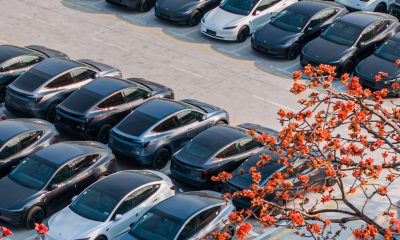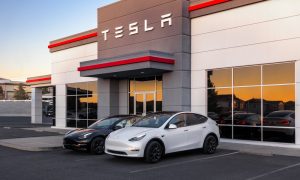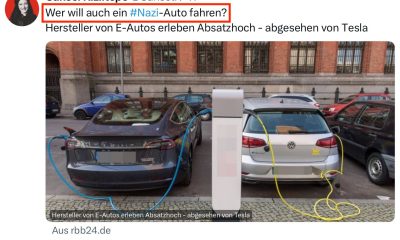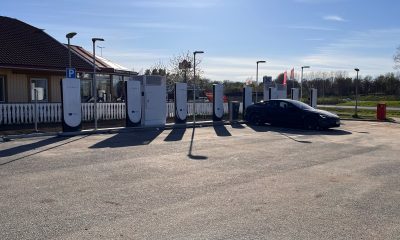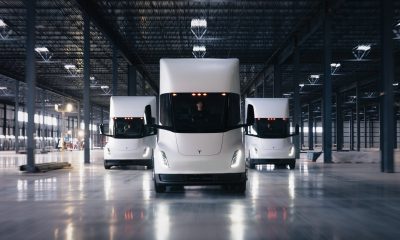

News
Tesla and Musk visit to China leaves India shocked: ‘Shoddy ethics or simply business?’
Tesla and CEO Elon Musk’s visit to China last weekend has left people in India “shocked. Musk postponed the visit to India after he said “very heavy Tesla obligations” left him no time to make what was expected to be a firm commitment to the country.
It appears the obligation may have been for Tesla to come to terms with Chinese government officials on the rollout of the company’s Full Self-Driving suite.
However, media outlets in India are confused by the visit to China. Some news stations even ran segments called “Hello China, Goodbye India?” according to a report from Reuters.
Others are asking the question of whether Tesla’s move to meet with Chinese government officials instead of India to discuss a potential Gigafactory was “Shoddy ethics or simply business.”
Tesla has been working with India for the better part of a decade to come to terms on a Gigafactory, and it appeared an announcement would be imminent at one point.
However, Musk postponed the late April meeting, citing “heavy Tesla obligations,” but did not go into further detail regarding what was more important. There have been a lot of new developments in the Tesla space recently, as everything from widespread company layoffs to an adjustment in the automaker’s plans for its next-generation lineup of vehicles has been discussed.
Nobody saw Musk visiting China and coming to an agreement with government officials on a tentative rollout of the Full Self-Driving suite. It is entirely possible that this was the bigger Tesla obligation, as a rollout of Full Self-Driving in foreign countries could be looked at as a bigger priority than another factory, especially in today’s economic conditions.
Tesla is also struggling to keep demand up for its vehicles, just as every other EV maker is. It said in its Q1 2024 Shareholder Deck that more companies were shifting their attention toward hybrid electric vehicles, as consumers seem to want the advantages of both ICE and EV in one car.
Now, Indian political opponents of current Prime Minister Narendra Modi are using Musk’s postponed visit as fuel due to shaky geopolitical tensions between China and India.
“Such is the lack of faith in the Modi govt’s regulatory policies, that big businesses are turning to China over India repeatedly,” Shama Mohamed, the national spokesperson of the opposition Congress party said.
After cancelling his planned visit to India, @elonmusk makes a surprise visit to China.
Such is the lack of faith in the Modi govt’s regulatory policies, that big businesses are turning to China over India repeatedly.
India needs a leader like @RahulGandhi ji who can invoke…
— Dr. Shama Mohamed (@drshamamohd) April 29, 2024
Tesla has not yet rescheduled Musk’s visit to India.
I’d love to hear from you! If you have any comments, concerns, or questions, please email me at joey@teslarati.com. You can also reach me on Twitter @KlenderJoey, or if you have news tips, you can email us at tips@teslarati.com.
News
Stellantis unveils solid-state battery for EVs
Stellantis validated solid state battery cells for EVs: ultra-dense, fast-charging, and AI-optimized. Launching demo fleet by 2026.
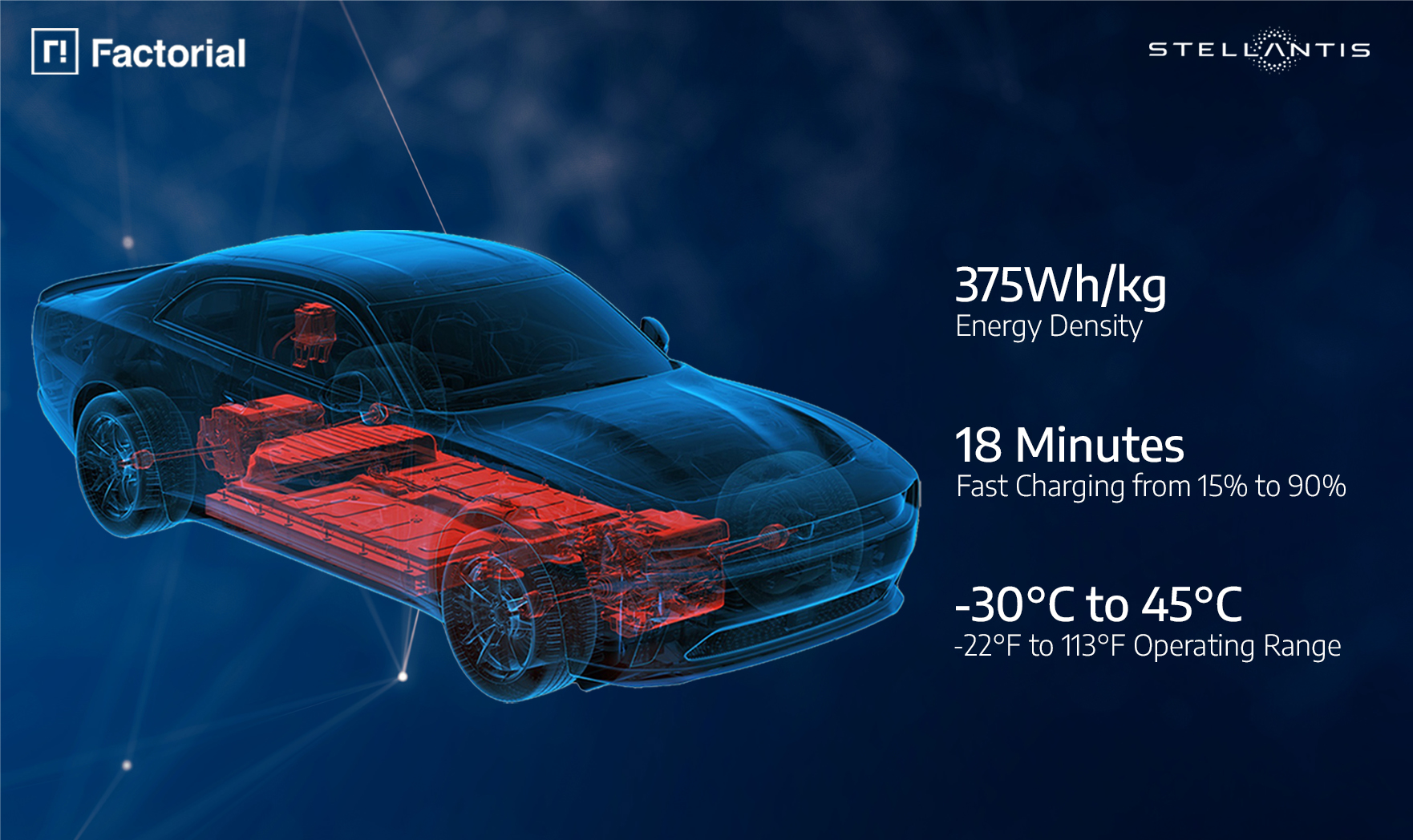
Stellantis N.V. and Factorial Energy have validated Factorial’s automotive-sized FEST® solid-state battery cells, a major milestone for next-generation electric vehicle (EV) batteries. The breakthrough positions Stellantis and Factorial to advance EV performance with lighter, more efficient batteries.
“Reaching this level of performance reflects the strengths of our collaboration with Factorial.
“This breakthrough puts us at the forefront of the solid-state revolution, but we are not stopping there. We continue working together to push the boundaries and deliver even more advanced solutions, bringing us closer to lighter, more efficient batteries that reduce costs for our customers,” said Ned Curic, Stellanti’s Chief Engineering and Technology Officer.
The 77Ah FEST® cells achieved an energy density of 375Wh/kg, supporting over 600 cycles toward automotive qualification. Unlike lithium-ion batteries, these solid-state cells charge from 15% to over 90% in 18 minutes at room temperature and deliver high power with discharge rates up to 4C. Factorial’s AI-driven electrolyte formulation enables performance in temperatures from -30°C to 45°C (-22°F to 113°F), overcoming previous solid-state limitations.
“Battery development is about compromise. While optimizing one feature is simple, balancing high energy density, cycle life, fast charging, and safety in an automotive-sized battery with OEM validation is a breakthrough,” said Siyu Huang, CEO of Factorial Energy. “This achievement with Stellantis is bringing next-generation battery technology from research to reality.”
The collaboration optimizes battery pack design for reduced weight and improved efficiency, enhancing vehicle range and affordability. Stellantis invested $75 million in Factorial in 2021 and plans to integrate these batteries into a demonstration fleet by 2026. This fleet will validate the technology’s real-world performance, a critical step toward commercialization.
The milestone aligns with Stellantis’ push for sustainable EV solutions, leveraging Factorial’s disruptive technology to meet the rising demand for high-performance batteries. As the companies refine pack architecture, the validated cells promise faster charging and greater efficiency, potentially reshaping the EV market. With the demonstration fleet on the horizon, Stellantis and Factorial are poised to lead the solid-state battery push, delivering cost-effective, high-range EVs to consumers.
News
Tesla China vehicle registrations rise 51% in April’s fourth week
In the week ending April 27, Tesla China saw 10,300 new vehicle registrations.
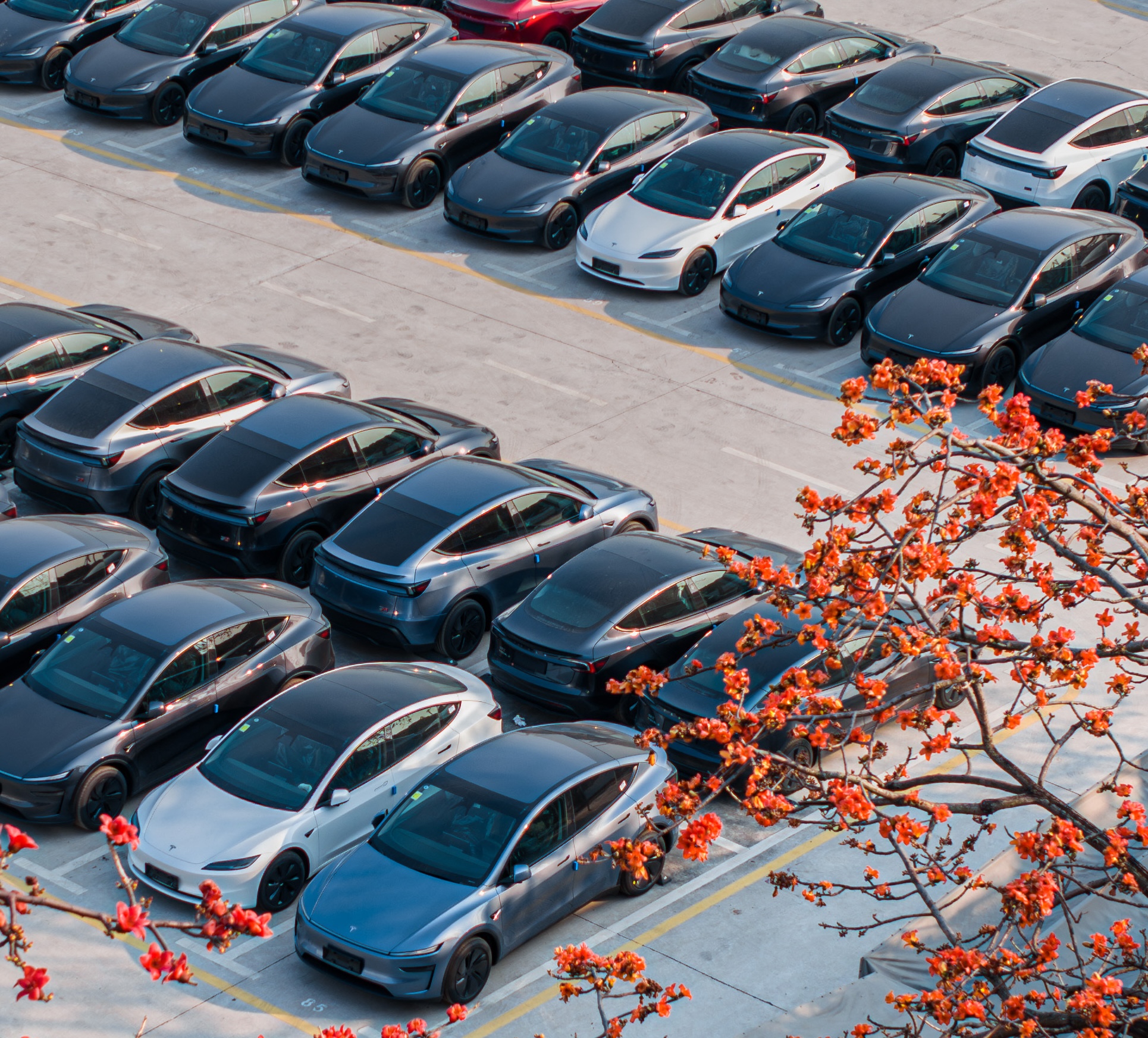
Tesla China’s new vehicle registrations saw a notable rise in the week of April 21-27, 2025. Over the week, the electric vehicle maker’s registrations saw an impressive 51% week-over-week rise, suggesting that domestic vehicle deliveries are on the rise once more.
Tesla China Results
In the week ending April 27, Tesla China saw 10,300 new vehicle registrations. This represents a notable rise from the company’s registration numbers in the past weeks of April. For context, Tesla China saw 3,600 registrations in the week ending April 6, 5,400 registrations in the week ending April 13, and 6,780 registrations in the week ending April 20, 2025.
Considering that April is the first month of the second quarter, expectations were high that Tesla China was allocating Giga Shanghai’s output for vehicle exports. With 10,300 registrations in the week ending April 27, however, it would appear that the company’s domestic deliveries are picking up once more.
Tesla China does not report its weekly sales figures, though a general idea of the company’s overall perforce in the domestic auto sector can be inferred through new vehicle registrations. Fortunately, these registrations are closely tracked by industry watchers, as well as some local automakers like Li Auto.
Tesla Model 3 and Model Y in Focus
Tesla China produces the Model Y and Model 3 in Giga Shanghai. Both vehicles are also exported from China to foreign territories. As per industry watchers, it would appear that both the Model 3 and Model Y saw an increase in registrations in the week ending April 27.
The Model 3, for one, appears to have seen 3,200 registrations in the week ending April 27, a 14% increase from the 2,800 that were registered in the week ending April 20. For context, Tesla China saw just 1,500 new Model 3 registrations in the week ending April 13 and 1,040 registrations in the week ending April 6.
The Model Y, on the other hand, saw 7,100 registrations in the week ending April 27. That’s a 77.5% increase from the 4,000 that were registered in the week ending April 20. Tesla also saw 3,900 registrations in the week ending April 13, and 2,540 registrations in the week ending April 6, 2025.
News
Volkswagen teams with Uber for robotaxi service with the ID. Buzz
Volkswagen and Uber team up to launch a driverless ID. Buzz robotaxi fleet in U.S. cities. Testing starts in LA this year.
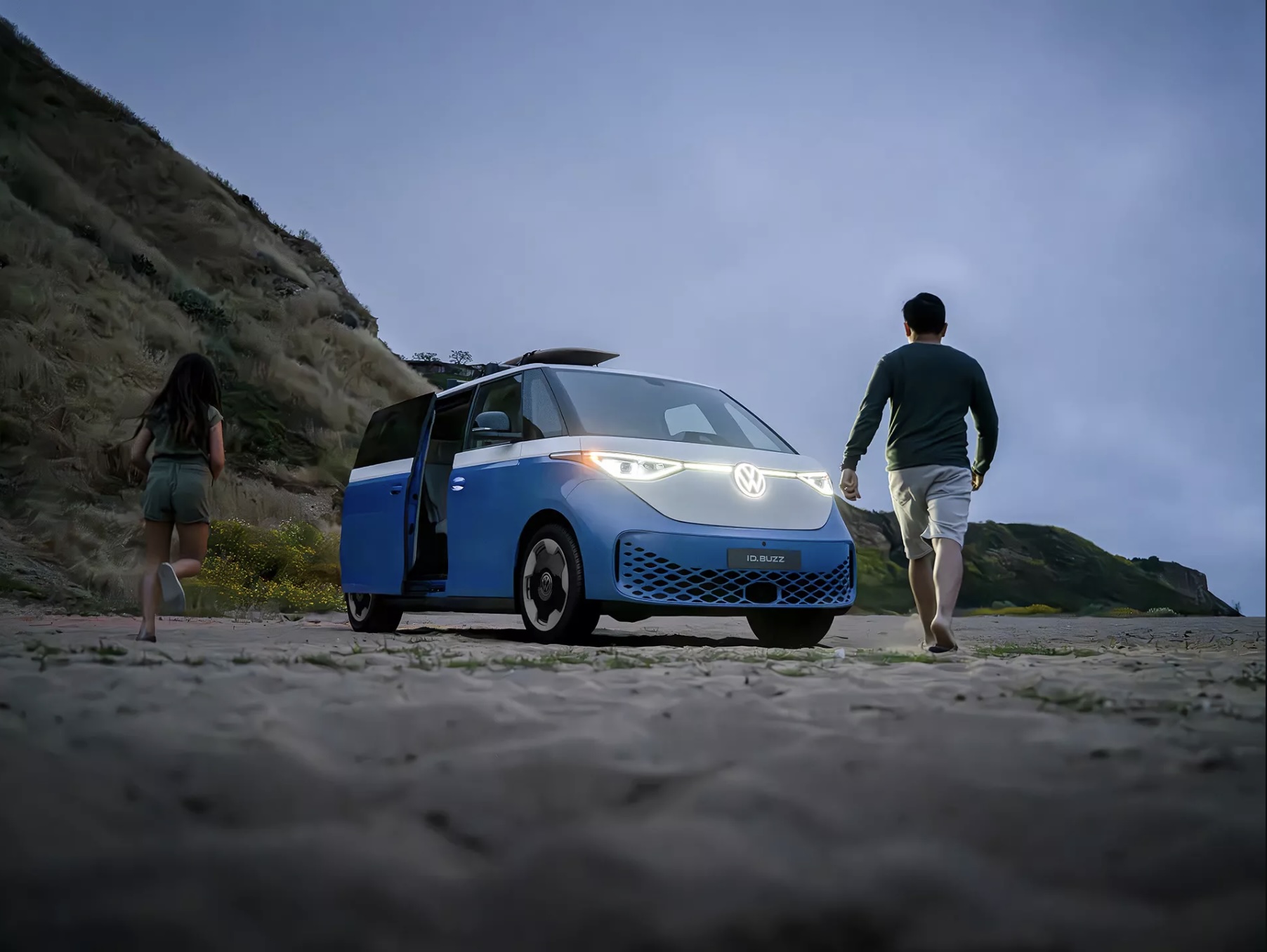
Volkswagen of America and Uber unveiled a plan to launch a commercial robotaxi service using autonomous electric ID. Buzz vehicles across U.S. cities over the next decade. The partnership marks a significant step for Volkswagen’s autonomous vehicle ambitions, leveraging Uber’s ride-hailing expertise.
The service will debut in Los Angeles by late 2026, with human safety operators initially overseeing the fleet before transitioning to fully driverless operations in 2027. Volkswagen ADMT, the German automaker’s autonomous subsidiary, will begin testing in Los Angeles later this year upon securing a testing permit from the California Department of Motor Vehicles. The California Public Utilities Commission will oversee permits for the commercial ride-hailing phase.
“Volkswagen is not just a car manufacturer — we are shaping the future of mobility, and our collaboration with Uber accelerates that vision,” said Christian Senger, CEO of Volkswagen Autonomous Mobility. “What really sets us apart is our ability to combine the best of both worlds–high-volume manufacturing expertise with cutting-edge technology and a deep understanding of urban mobility needs.”
The Trump administration’s recent policy shift, announced last Thursday by Transportation Secretary Sean Duffy, supports initiatives like VW and Uber’s partnerships by easing federal safety rules and crash reporting requirements on autonomous vehicle development. According to Duffy, the United States government wants to outpace Chinese competitors in autonomous vehicle development.
Volkswagen ADMT, which launched publicly in July 2023, has been testing 10 ID. Buzz vehicles equipped with Mobileye’s autonomous technology in Austin, reported TechCrunch. Two years ago, Volkswagen focused on selling self-driving vans and fleet management software rather than building its own ride-hailing service. VW’s strategy toward autonomous vehicles appears to have shifted, as reflected in its Uber partnership.
Uber will strengthen its autonomous vehicle portfolio through its partnership with Volkswagen. The ride-hailing service company has secured deals with over 14 firms, including Waymo in Austin and a forthcoming launch in Atlanta.
The Volkswagen-Uber collaboration positions both companies to capitalize on the growing robotaxi market. With testing imminent and regulatory support increasing, the ID. Buzz fleet could redefine urban mobility, blending Volkswagen’s manufacturing prowess with Uber’s ride-hailing network to compete in the evolving autonomous vehicle landscape.
-
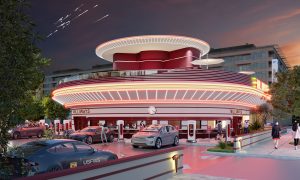
 News1 week ago
News1 week agoTesla’s Hollywood Diner is finally getting close to opening
-
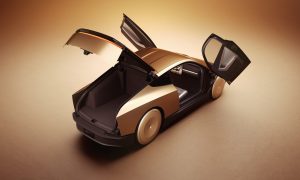
 Elon Musk2 weeks ago
Elon Musk2 weeks agoTesla doubles down on Robotaxi launch date, putting a big bet on its timeline
-
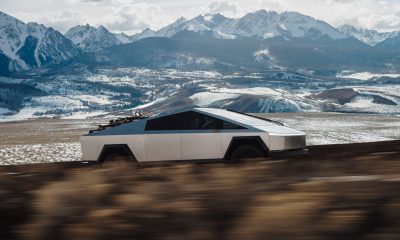
 News4 days ago
News4 days agoTesla is trying to make a statement with its Q2 delivery numbers
-

 News2 weeks ago
News2 weeks agoTesla’s top investor questions ahead of the Q1 2025 earnings call
-

 News2 weeks ago
News2 weeks agoUnderrated Tesla safety feature recognized by China Automotive Research Institute
-
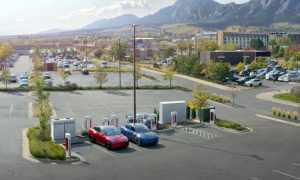
 News2 weeks ago
News2 weeks agoTesla reveals its Q1 Supercharger voting winners, opens next round
-
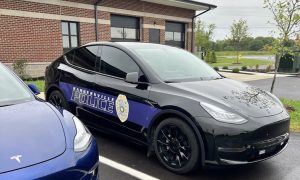
 News2 weeks ago
News2 weeks agoTesla police fleet saves nearly half a million in upkeep and repair costs
-
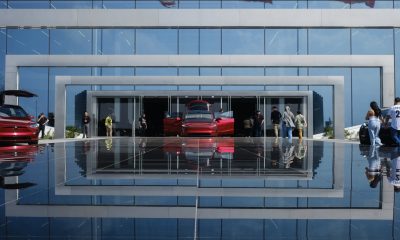
 Investor's Corner7 days ago
Investor's Corner7 days agoLIVE BLOG: Tesla (TSLA) Q1 2025 Company Update and earnings call

